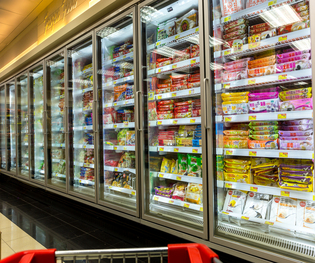The frozen food section offers a little bit of everything; from full meals to desserts and everything in between. Recent research however has shown a steady decline in frozen food sales the past few years in almost every demographic but one: the millennials.
Historically, frozen food has earned a bad reputation of being unhealthy in a number of ways, including high calories and sodium. Although the industry was on the decline, frozen food brands are now starting to appeal to their #1 consumer. With innovative ideas backed by key trends, the millennials are the future of frozen foods.
Why Millennials?
Not only are millennials entering their peak earning years, but studies have shown that they are also more health-conscious and mindful about their purchases compared to earlier generations. Frozen food is the appeal as they want something that is healthier for them, with the convenience of it being hassle-free to fit into their fast-paced lifestyle.
According to a recent study done by Acosta, millennials say they see frozen foods most beneficial as quick dinner solutions (89%), convenient breakfasts for kids (81%), side dishes (78%), and easy-to-prepare lunches (72%). In the same study, it was found that when making frozen food purchasing decisions, millennials were most concerned that foods would be free of antibiotics and hormones, were all-natural, sustainably-sourced, and are low-sodium products. Among the survey participants who said they plan on buying more frozen foods in the next year, convenience and the fact that they don’t spoil as quickly as fresh foods were among the top reasons.
What This Means for Frozen Food Brands & Retailers
Fortunately for many brands & retailers, what one considers “healthy” is a personal choice and can include choices that are low-sodium, feature less calories, are organic, or made from simpler ingredients.
Many brands have already started to repackage their products to be marketed to millennials. We are seeing better nutrition info on packaging, emphasis on health benefits such as protein and fibre, and new combinations of ingredients and flavours. Some brands are also marketing to specific groups within the millennial demographic such as to young men with the Hungry-Man brand of frozen dinners.
Frozen food is one of the few departments that is still more frequently purchased in-store rather than online, so these products just may be the solution to keeping the brick and mortar stores busy.
Retailers and brands should keep in mind that the majority of their consumers are millennials who are looking for fast and easy options that still provide health benefits.









